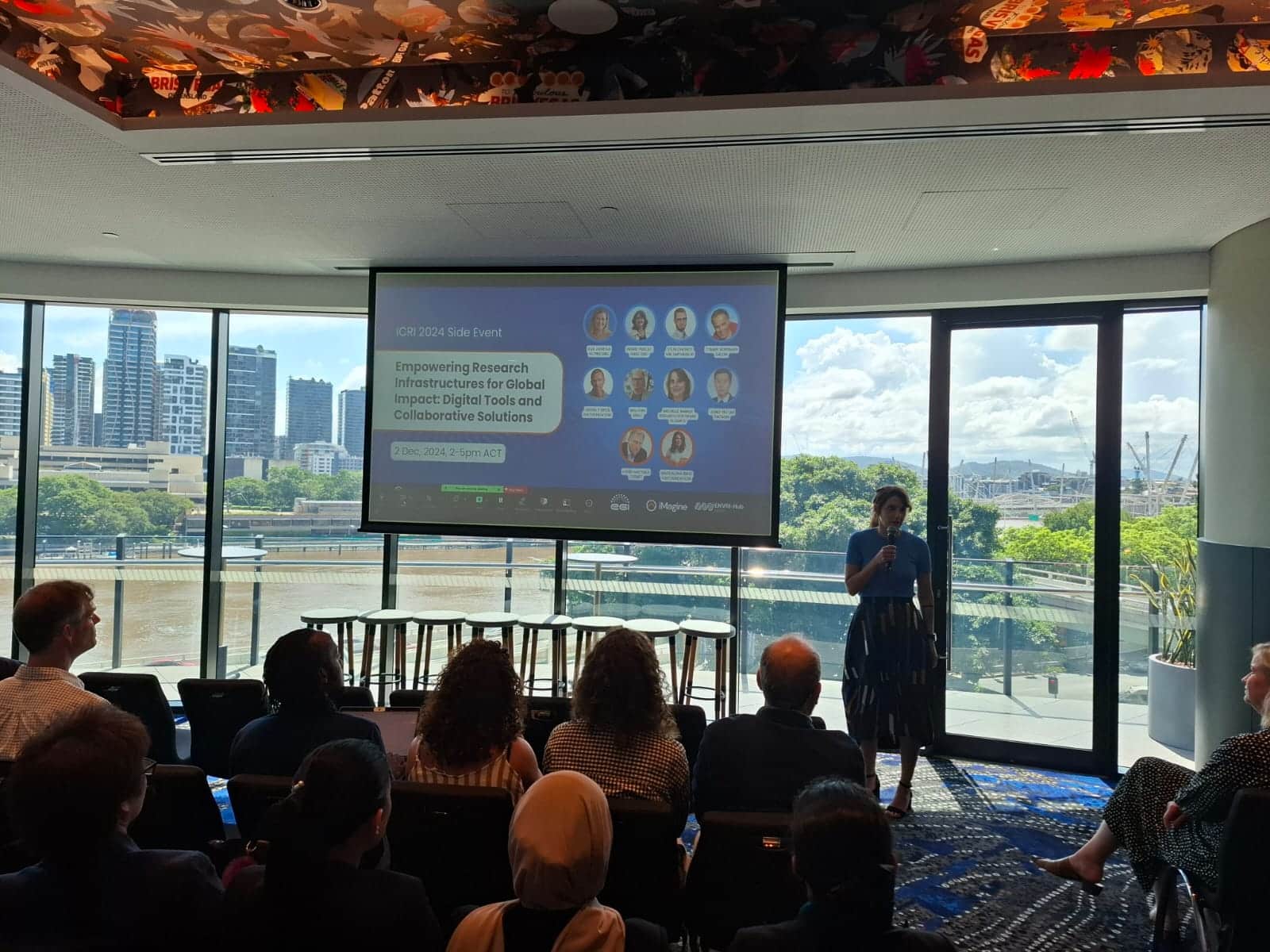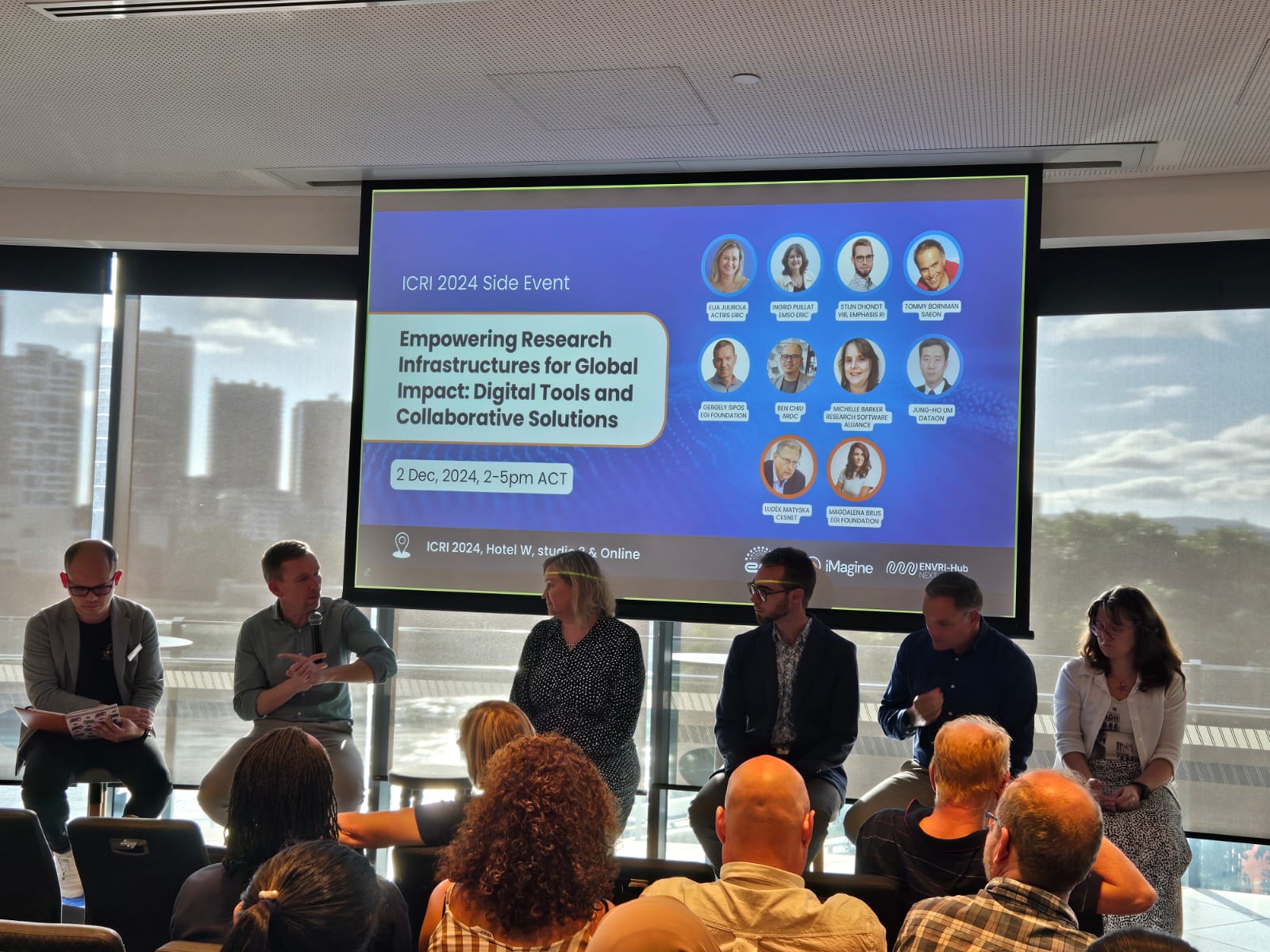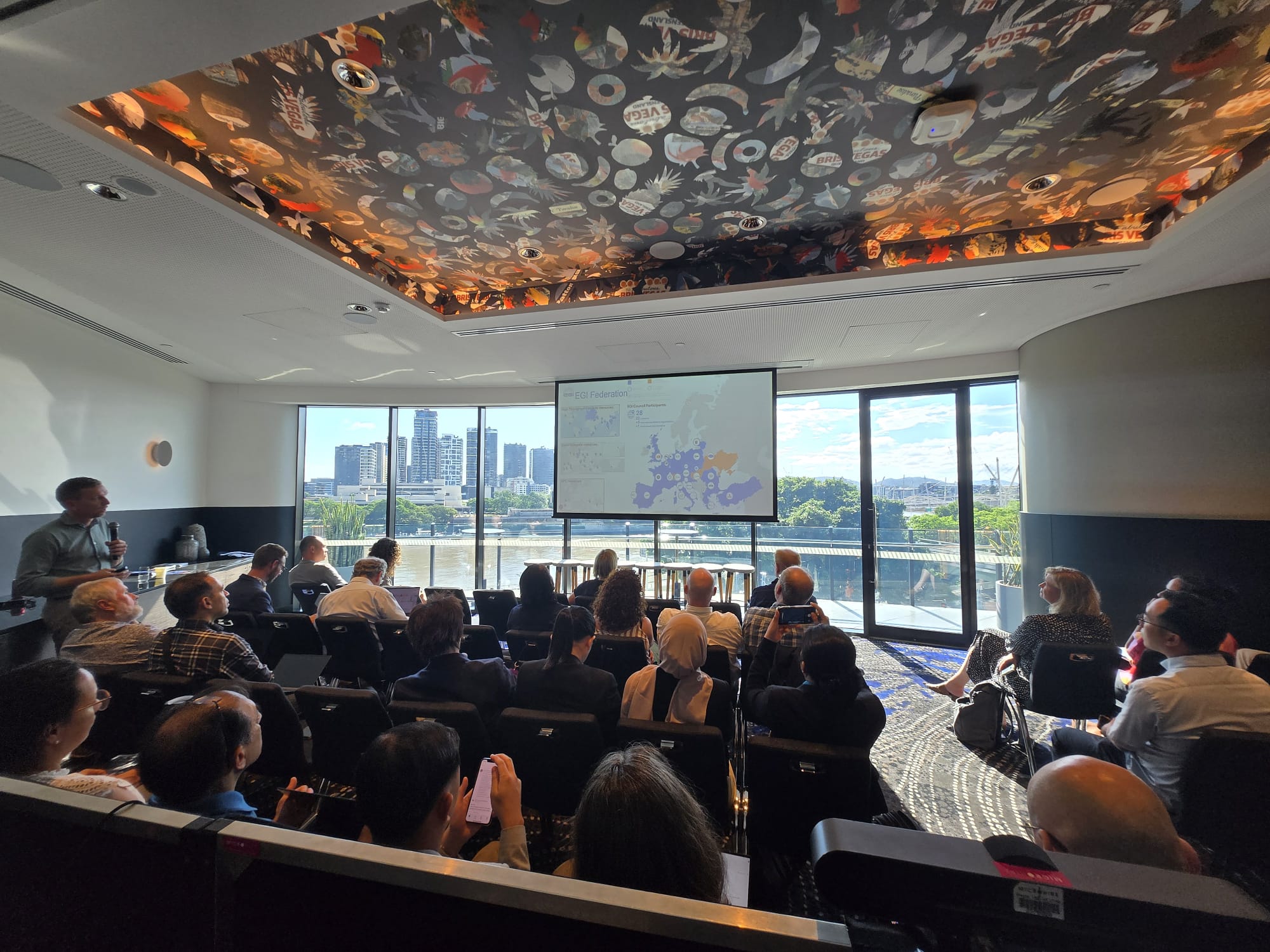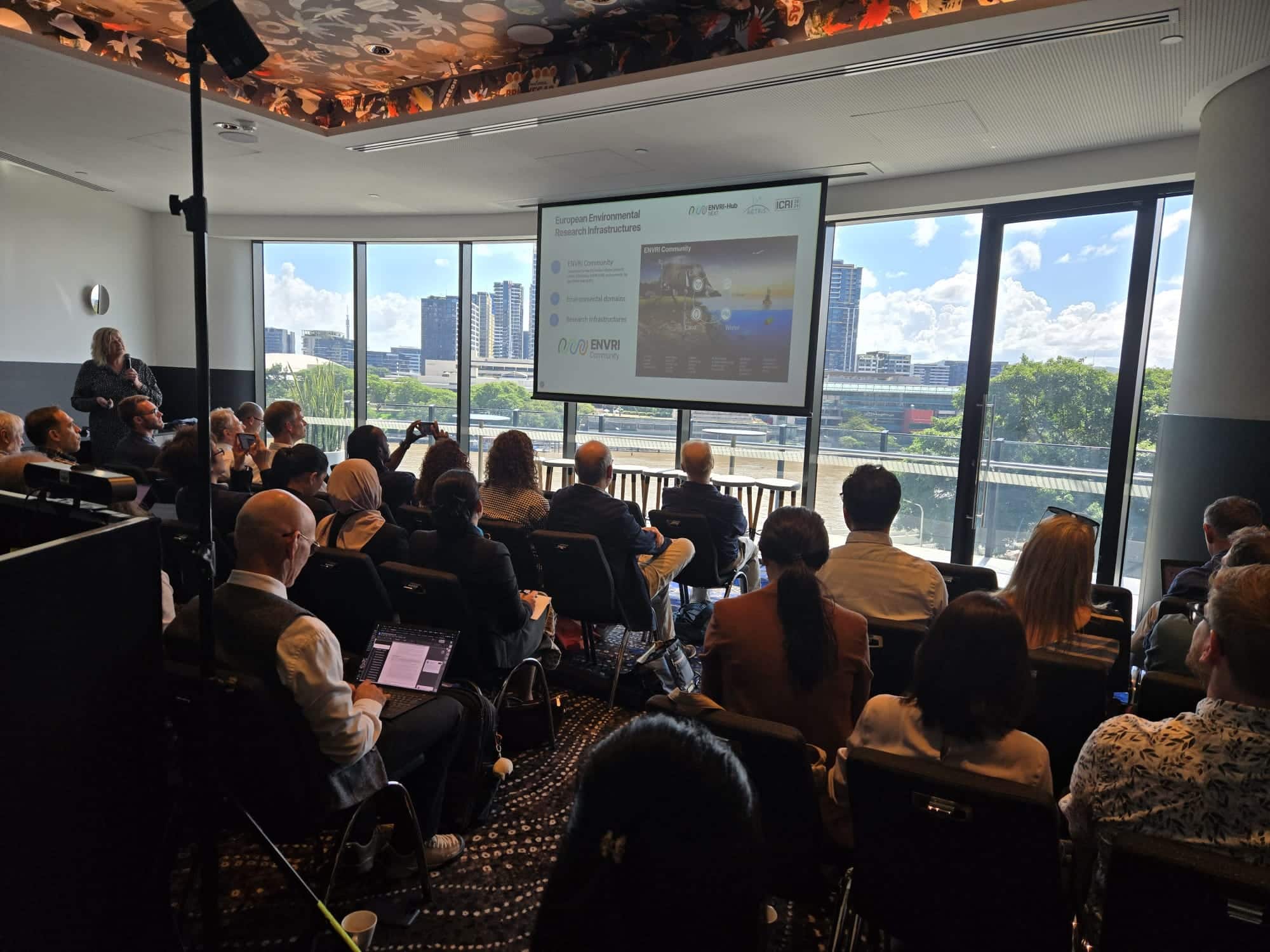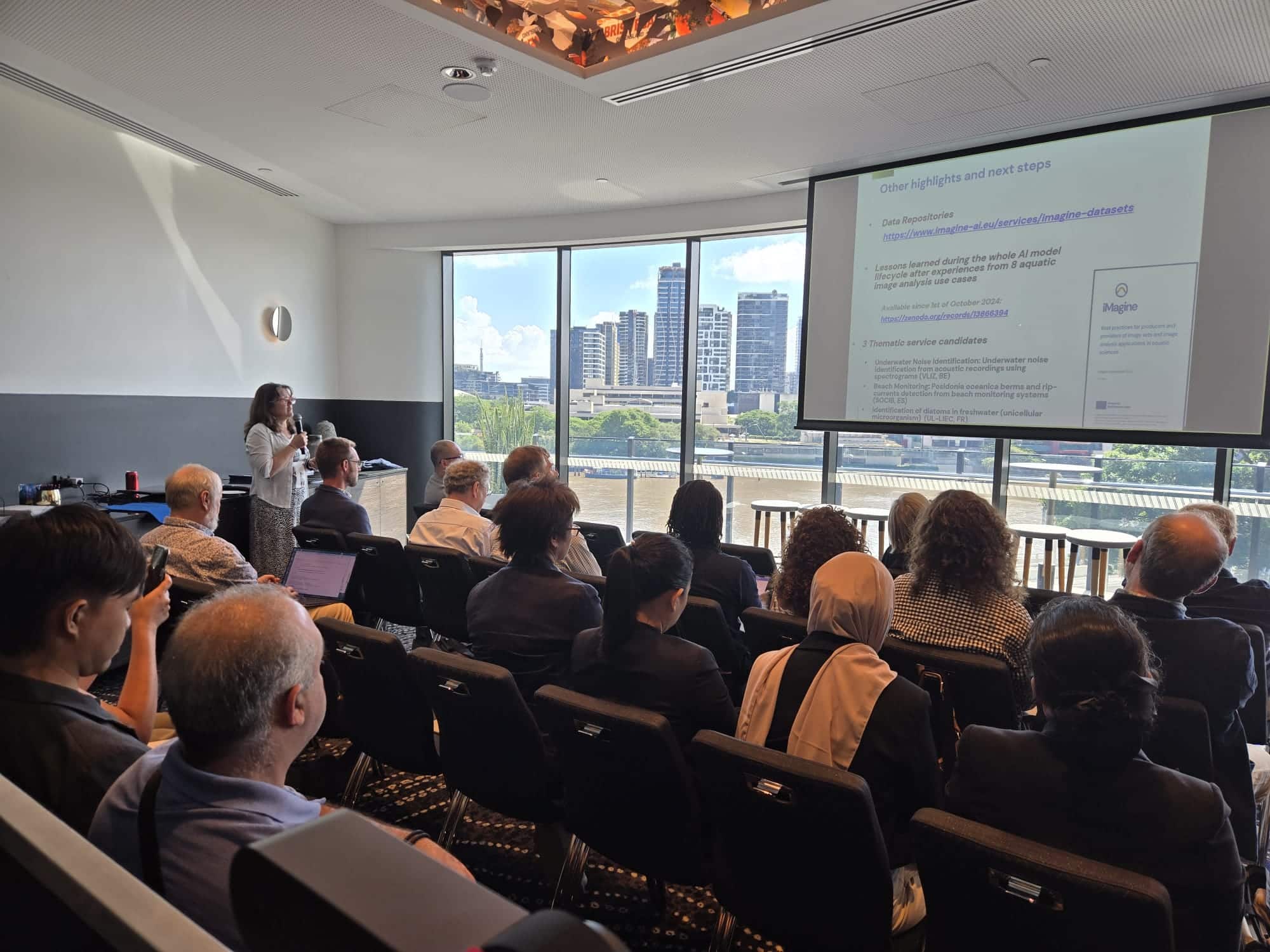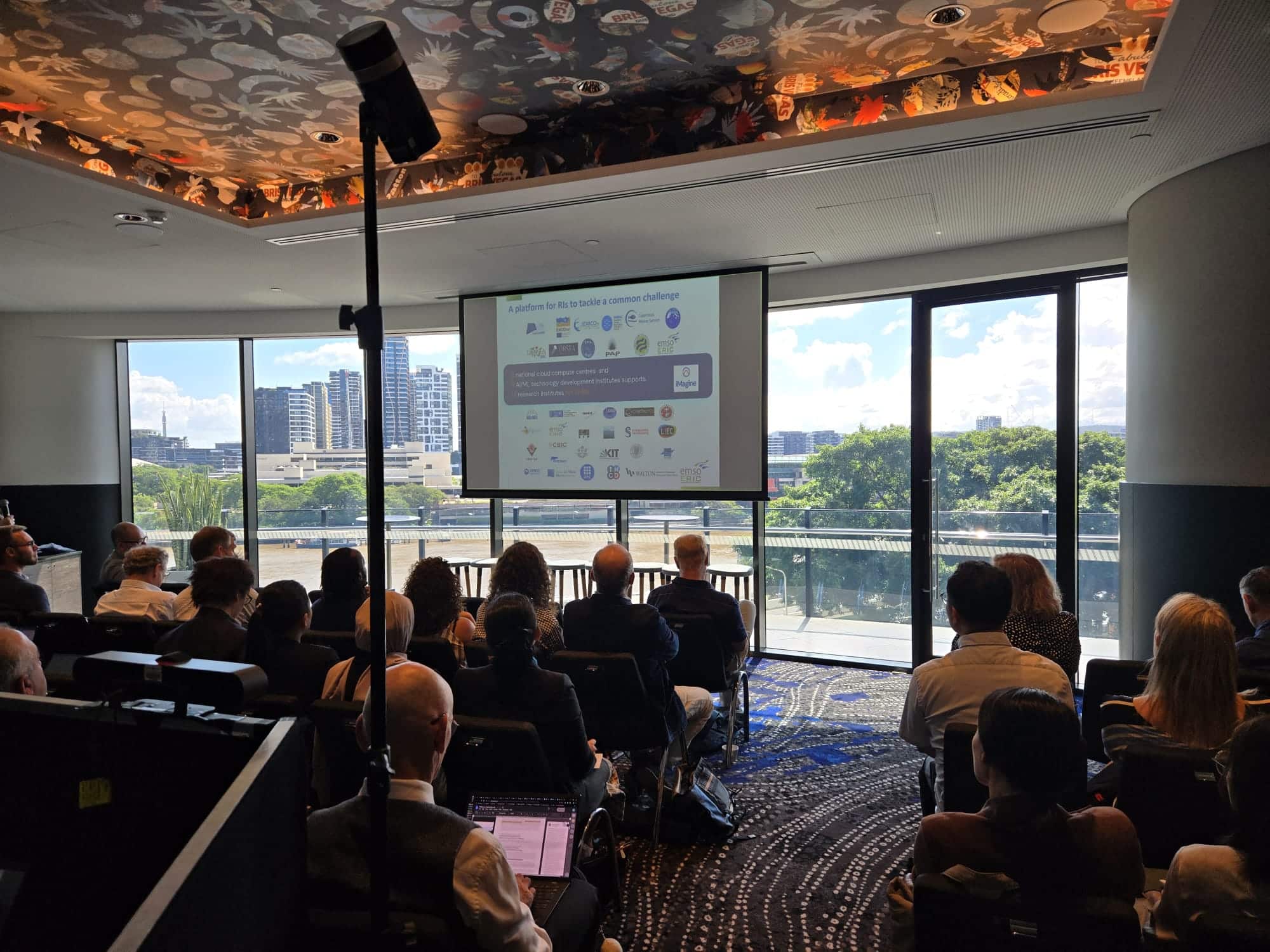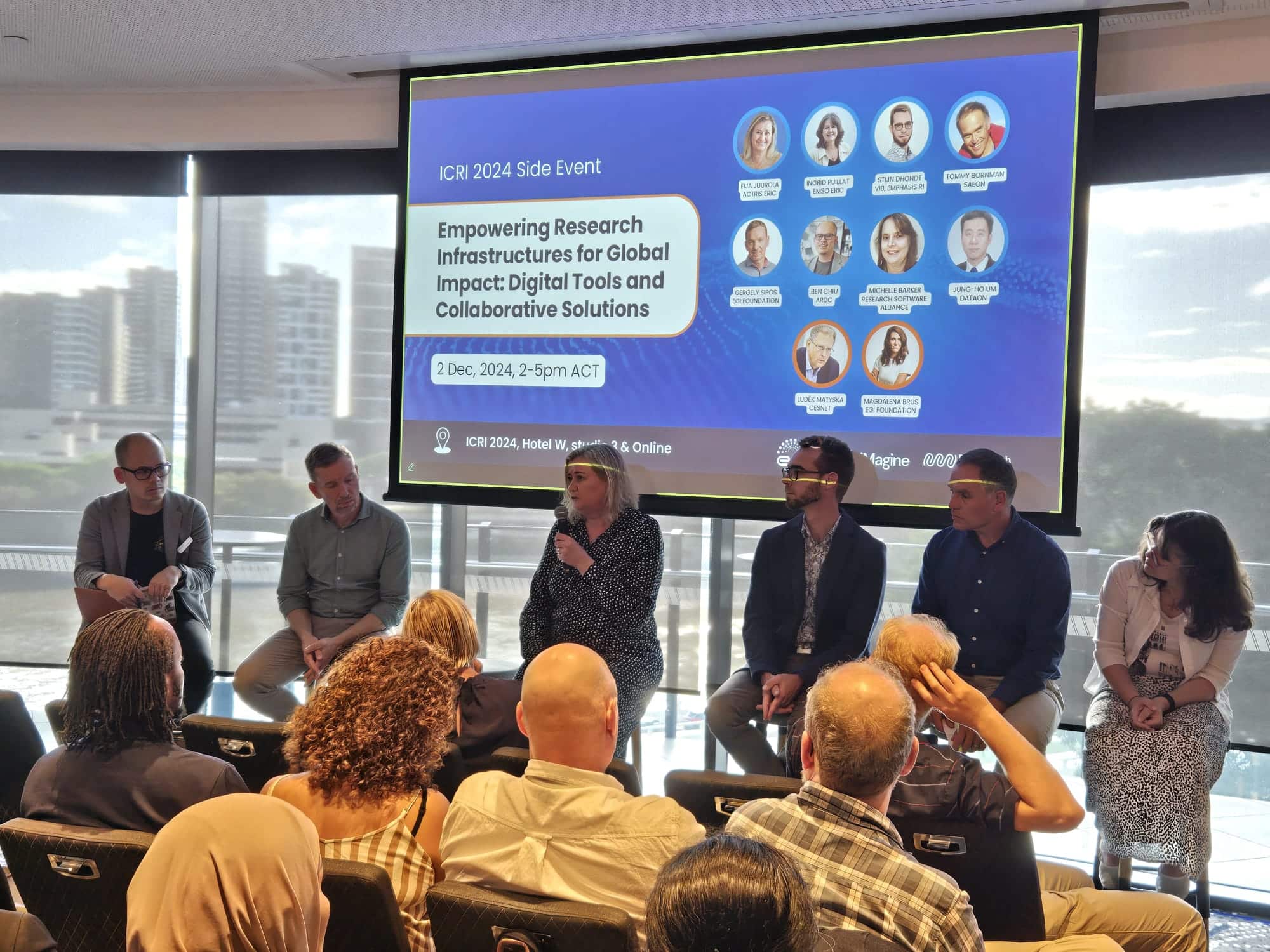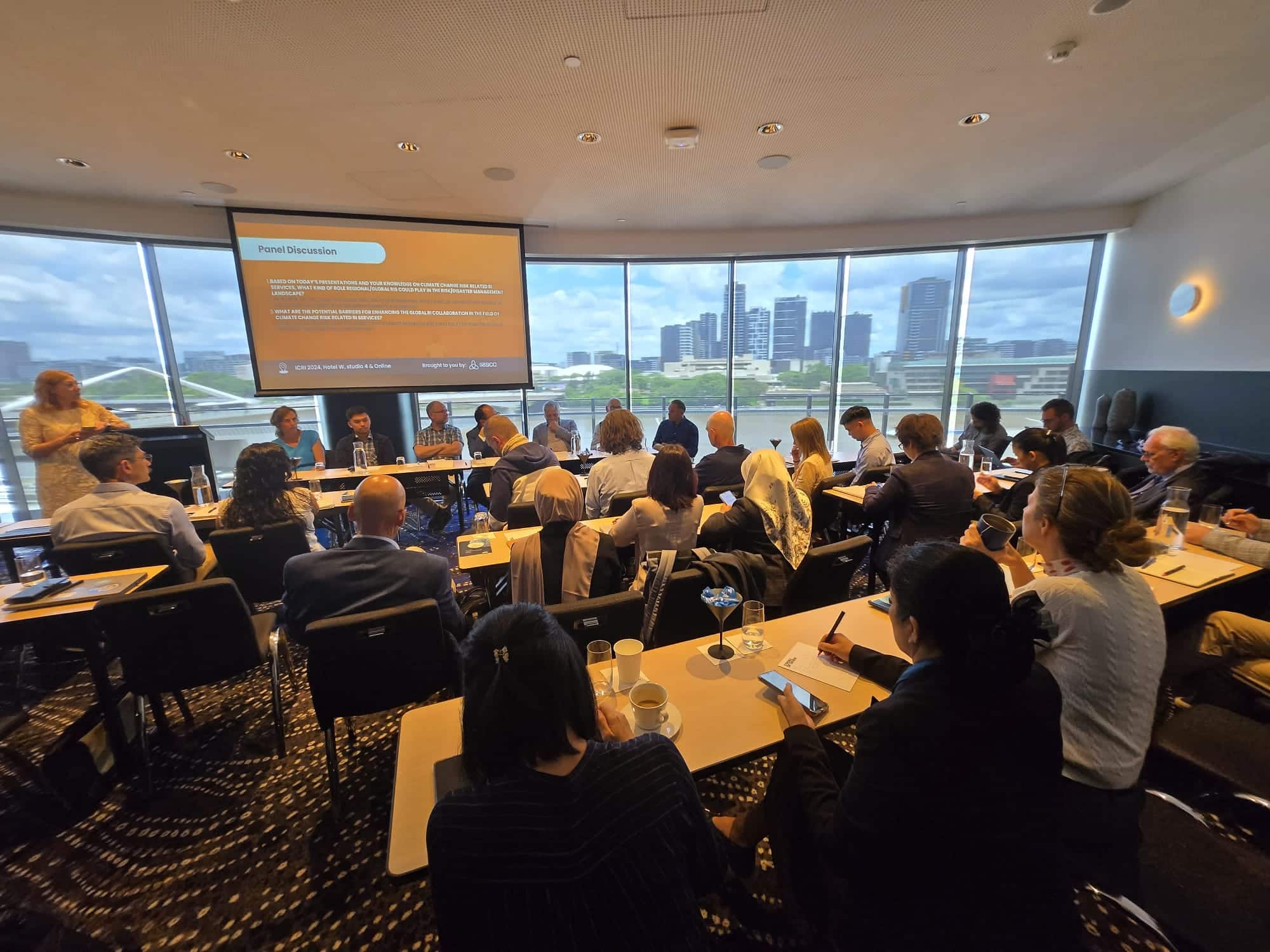EGI at ICRI 2024

The International Conference on Research Infrastructures (ICRI) 2024 provided a key platform for discussing the evolving role of Research Infrastructures (RIs) and Digital Infrastructures in addressing global challenges such as climate change, health, and sustainability. As one of the key players in Europe's digital research infrastructure space, EGI showcased its contributions to this critical discussion by organising a side event featuring its coordinated projects ENVRI-Hub NEXT and iMagine. These projects exemplify the integration of advanced digital technologies with environmental research infrastructures to enhance their capabilities and impact.
EGI’s Coordinated Projects Supporting the RIs' Digital Transformation at ICRI 2024
EGI coordinated a side event focused on how digital infrastructures are transforming the landscape of research. Moderated by EGI's Communications Lead Magdalena Brus, the session explored how digital tools and platforms can help RIs overcome challenges, optimise their resources, and amplify their scientific impact. Key highlights included presentations from ENVRI-Hub NEXT and iMagine, two projects advancing interoperability and AI-powered technologies within the environmental research infrastructure ecosystem.
- ENVRI-Hub NEXT: Presented by Eija Juurola (ACTRIS ERIC), this project emphasises a cluster approach for improving interoperability among environmental data and services. By connecting multiple environmental RIs, ENVRI-Hub NEXT aims to create a unified platform for data sharing and collaboration, essential for tackling complex environmental challenges, such as climate change and biodiversity loss. With a focus on Essential Climate Variables, the project focuses on making environmental data more accessible, reusable, and interoperable, which enhances the global scientific community’s ability to address pressing challenges through coordinated research.
- iMagine: Ingrid Puillat (EMSO ERIC) showcased this innovative project, which applies AI-powered image analysis tools to aquatic sciences. iMagine aims to improve the analysis of underwater images, enabling more efficient monitoring of ocean ecosystems and facilitating data-driven decisions in marine research. By incorporating AI and machine learning, the project provides scalable, advanced solutions to environmental monitoring, significantly boosting the capabilities of marine-focused research infrastructures.
In the second part of the session, EGI's Head of Services, Solutions and Support Gergely Sipos delivered a presentation on the landscape of digital infrastructures, focusing on their critical role in advancing global research. He highlighted the European perspective, while emphasising the need for international collaboration to build resilient and scalable digital infrastructures that can support a wide range of research activities.
Gergely stressed that, as research becomes increasingly data-driven, digital infrastructures are more crucial than ever for enabling RIs to manage and process vast amounts of data, share knowledge globally, and support interdisciplinary research. This aligns with the Brisbane Statement, which specifically highlights the role of digital infrastructures in addressing global challenges and in fostering the digital transformation of RIs to achieve greater scientific impact. EGI's perspective on the Brisbane statement can be found here.
IRISCC: Leveraging Research Infrastructures for Climate Resilience
In addition to the above session, EGI coordinated another side event titled Leveraging Research Infrastructures for Addressing Climate Change Risks. Organised by Magdalena Brus, this session spotlighted the IRISCC project and its role in fostering climate resilience through integrated RI services.
The event showcased regional perspectives and interdisciplinary collaboration, emphasising the importance of international cooperation for data sharing and knowledge exchange. Presentations included case studies addressing air quality, droughts, flood management, and water security, highlighting the diverse ways RIs can contribute to global climate action.
A lively panel discussion delved into the challenges and opportunities for building a collaborative global framework for mitigating and adapting to climate risks. This session exemplified how RIs, supported by advanced digital infrastructures, can drive meaningful and impactful climate resilience strategies.

